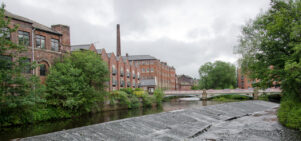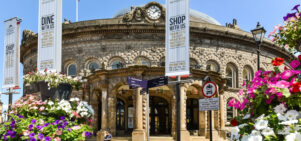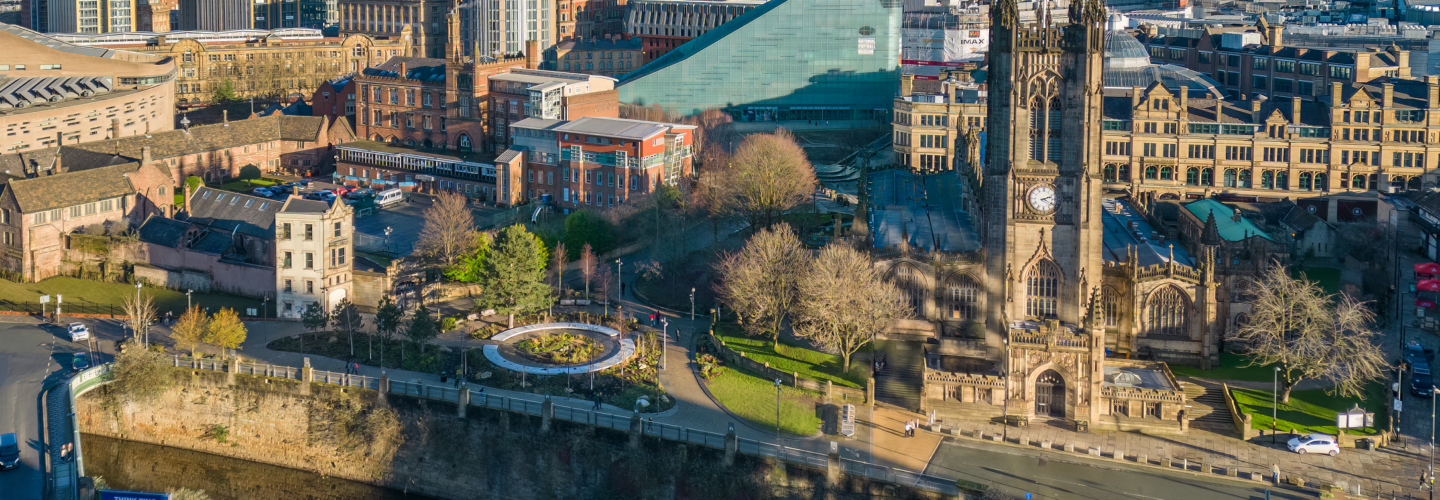Elizabeth Gaskell Profile: Author, activist, radical
Andrew AndersonWhat makes Elizabeth Gaskell a modern woman? We take a look the progressive thinker and writer who lived in Manchester for 32 years.
A woman ahead of her time. That’s one way to think of Elizabeth Gaskell – author, activist and radical. In her thirties she was drawing attention to the welfare of women, in her forties she was an advocate for sustainability and growing your own while she spent her latter years highlighting the plight of the poor. And all this while raising a family of four girls and writing a best seller about as often as most men might buy a new suit. What I’m saying is, all in all, she’s a bit of a Manchester legend.
But here’s the thing; Gaskell didn’t grow up in this century, or the last. Elizabeth Gaskell spent 32 years living in Victorian Manchester, in the 1800s. So, she wasn’t just ahead of the curve, she was off the page and out of sight. Today, Mrs Gaskell is best remembered for her novel Cranford, which is sharp, warm, and takes a few well-aimed swipes at silly social stratifications. While a brilliant book, it is a shame that someone with such a radical spirit should be remembered for one of her more tempered works. With the reopening of Manchester Central Library, though, home of the Gaskell Collection, there has never been a better time to re-discover more about one of Manchester’s most worthy citizens. Now, you can get closer to a woman whose career is impressive even by today’s standards, with letters, articles and artefacts of a life spent writing and rebelling.
She’s a bit of a Manchester legend
From the outset Gaskell’s output caused controversy. Mary Barton, her first novel, contains a virtuous prostitute, a cold-blooded murder and features strong women as the central characters; this wasn’t really the done thing in staid and suppressed Victorian England. Her fondness for the average person shines through in the book, as it does in her letters. She talks of “the pure bread Lancashire man” as being, “a right fine fellow” and added that you were better of speaking to the working class than “refined young men, who are stupid.” Browsing the epistolary part of the Gaskell Collection brings her spirit directly to you, as though you were, in fact, the lucky recipient of her correspondence; her character pours off the pages. It’s also rather wonderful to hold documents she touched in your hand.
Even as Cranford solidified her reputation, Gaskell kept up a home life that many modern parents are only too familiar with. As she wrote to a friend, “I’ve boiled the beef, dressed the girls and planted the perennials…and it’s not even half past ten!” By this time she had moved to what is now known as The Gaskell House on Plymouth Grove. This proud-faced, square-set building stands alone among the new terraces near the Royal Manchester Children’s Hospital and is currently undergoing a complete refurbishment, due to reopen in October.
It was here that she practiced the practical and productive life often associated with Unitarians, keeping a menagerie of animals (including pigs, poultry and a cow) and promoting a self-sustaining existence that has a very modern feel to it. Further, she gave back to the local community by teaching at Sunday School and using another of her talents, sewing, to make clothes for the needy. Added to all of this, she rescued several so-called “fallen girls” during this time, raising money to send them abroad, where they could begin a new life. The documents relating to this are among the most touching in the Gaskell Collection.
The number of these women was on the rise, partly due to mass unemployment in Manchester following the Lancashire Cotton Famine. Gaskell threw herself into the task of fundraising for those affected, writing to members of parliament and well-to-do types who she thought might help. She also wrote an even more controversial novel, Ruth, which explored the unfair imbalance in sexual relations between men and women. It caused such uproar that her publisher issued an apology – one that Gaskell did not approve, as she had sensibly made sure she was out of the country on the day of publication.
By this time her famous energy was starting to wane; she speculated that heaven would be “a place where all books and newspapers will be prohibited.” She also condemned “The Manchester Attitude,” where people would rather give money than time. Her later novels, while entertaining, do not have the same insurgent urgency of her earlier work. The smog of the city took a toll on her health and, while talking to her daughters around the fireplace, she dropped dead mid-sentence at the age of just 55.
Elizabeth Gaskell has had a huge and lasting impact on Manchester. Her writing indicated the latent power residing in the nation’s women and she did much to raise awareness for society’s dispossessed. Beyond this, her writing has entertained and informed millions of readers worldwide. While she may have considered it an insult, I’d like to think that Gaskell represents a more positive version of The Manchester Attitude: a can-do rebel who cares about family, equality and making sure there is time for a bit of fun in life.


















